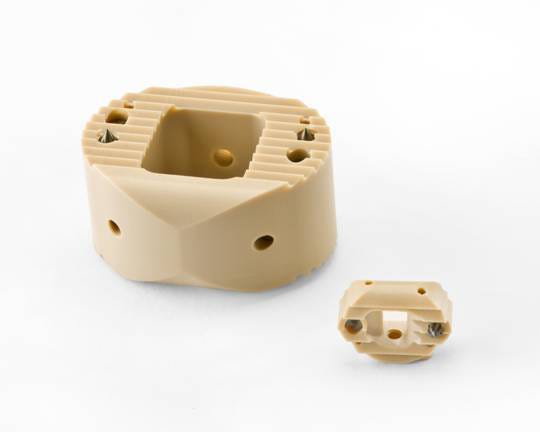Solvay Specialty Polymers is boosting staffing by 50% for medical market sales, marketing, and technology functions in the U.S. and Europe as part of its increased its focus on the healthcare industry. In addition to the hiring, Solvay announced a new management structure, dividing its relevant employees into teams for implantable and non-implantable medical devices.
June 8, 2011
Solvay Specialty Polymers is boosting staffing by 50% for medical market sales, marketing, and technology functions in the U.S. and Europe as part of its increased its focus on the healthcare industry. In addition to the hiring, Solvay announced a new management structure, dividing its relevant employees into teams for implantable and non-implantable medical devices.
Maria Gallahue-Worl has been named global business development manager for healthcare plastics used in non-implantable devices, with Judy Melville appointed to be the global business development manager for Solvay's Solviva line of biomaterials offered for implantable devices.
Solvay PEEK spinal implant |
Apollo Spine utilized Solvay's Zeniva PEEK for these lumbar and cervical spacers. |
The non-implantable segment offers medical-grade plastics for instrumentation, reusable and single-use devices, medical equipment, and sterilization cases and trays, including Radel polyphenylsulfone (PPSU), Udel polysulfone (PSU), Ixef polyarylamide (PARA), AvaSpire polyaryletherketone (PAEK), and KetaSpire polyetheretherketone (PEEK).
Solviva Biomaterials include Zeniva PEEK, Proniva self-reinforced polyphenylene (SRP), Eviva polysulfone (PSU), and Veriva polyphenylsulfone (PPSU). At this point in time, Solvay reports that more than 10 devices have now been cleared through the Food & Drug Administration (FDA) via the 510(k) process, including six in implantable spinal devices.
In May, Apollo Spine Inc. (Newport Beach, CA) received FDA 510(k) clearance for its Eclipse-L vertebral interbody lumbar spacer and Eclipse-C vertebral interbody cervical spacer made of Zeniva PEEK.
The spacer systems, which are made from 30- and 40-mm-diameter Zeniva PEEK rod stock, are implants that maintain disc space following a discectomy. The implants are hollow so that bone can grow through the device, fusing the adjacent bony surfaces of the vertebrae.
Sovay said its Zeniva material offers numerous advantages over metals like titanium used in intervertebral implantable devices, including biocompatibility, chemical inertness, and a modulus of elasticity that is close to that of bone. Based on biocompatibility testing, Zeniva demonstrated no evidence of cytotoxicity, sensitization, irritation, or acute systemic toxicity. In addition to high strength and stiffness, the PEEK resin has radiolucent properties that permit x-ray procedures.
About the Author(s)
You May Also Like



